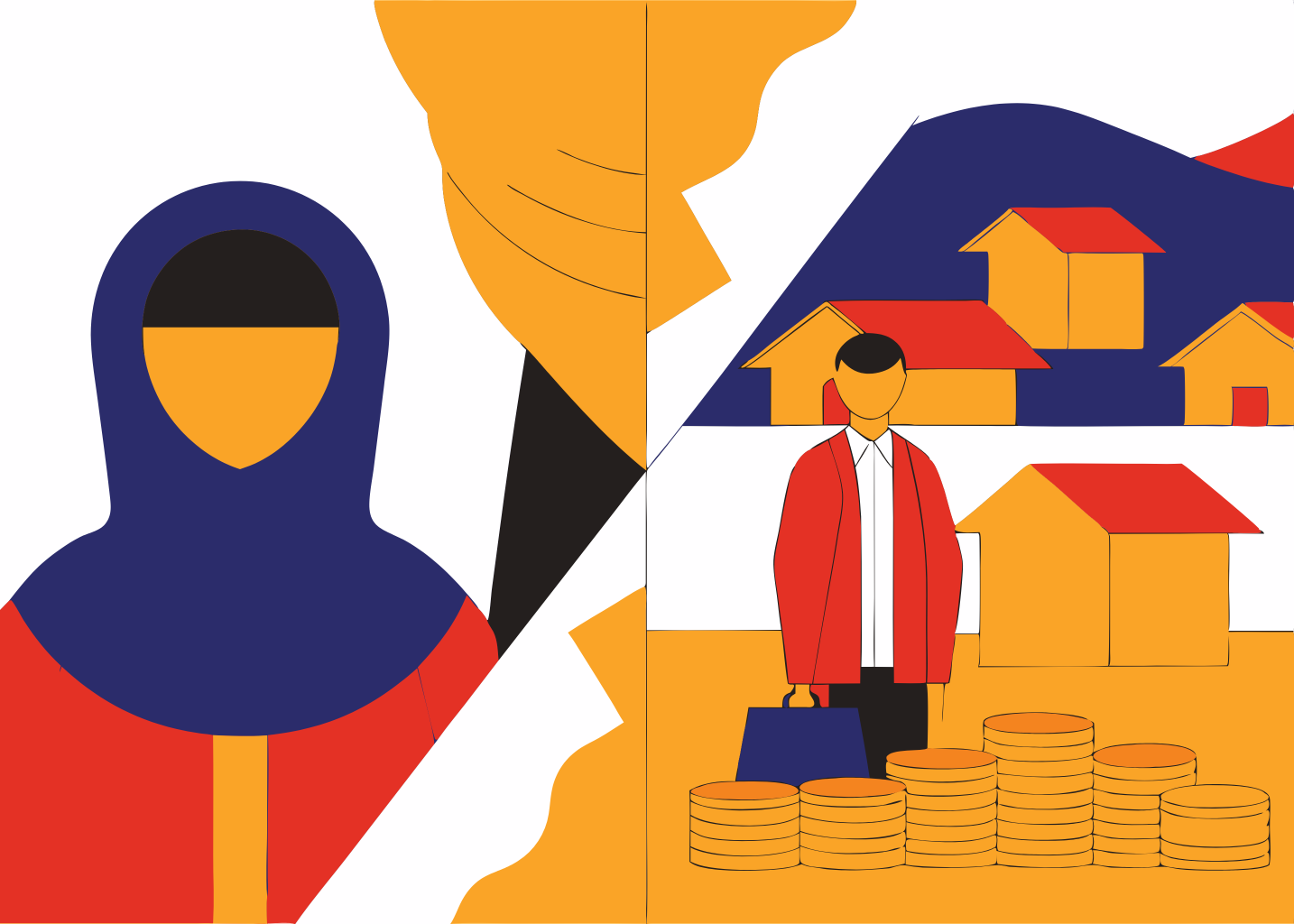Unregistered but Thriving: The Growing Business of Polygamous Marriages in Kurdistan

According to official 2024 statistics, the Kurdistan Region recorded a total of 98 legally registered second marriages, with Erbil Province leading at 45 registrations, followed by Duhok with 34, and Sulaimani with 19. No second marriages were officially registered in Kirkuk/Garmian. However, these figures substantially underrepresent the actual prevalence of such marriages in the region.
The data on second marriages is largely misleading and lacks accuracy. Official figures only account for marriages registered with KRG courts, whereas in reality, second marriages have been on the rise across the region. In theory, the KRG has made polygamy nearly impossible as it requires strict conditions which almost none of those seeking second marriages meet. This is why people often either go to Mosul or Kirkuk, which are under Iraqi control and have significantly more relaxed laws on this matter, or they arrange these marriages in Syria where the regulations are less stringent. Many individuals bypass KRG registration entirely, opting instead to formalize these marriages outside the region, where the process is significantly easier. According to a report by Rudaw TV, a single matchmaker who specializes in arranging second and third marriages has reportedly facilitated at least 5,000 such unions between men in Kurdistan and brides from Syria and Mocorro.
Kurdistan Region Marriage Statistics
Analysis of polygamy and divorce rates across provinces
Polygamy Statistics (2024)
Divorce Statistics by Province
This discrepancy between official statistics and actual practices points to a growing underground industry. Several investigative reports have documented the emergence of professional matchmaking services specifically for second and third marriages. These services have evolved into a sophisticated business network, catering primarily to men in their late 40s and older from the Kurdistan Region who seek much younger brides—typically in their early 20s or younger. These brides predominantly come from economically struggling regions in Syria, particularly Homs, Hama, and Aleppo, where financial hardship makes such marriages appear as viable options for families. One matchmaker has even said that he now tries to diversify where to find wives for the growing demand and said he wants to also go to Ukraine but as soon as it is possible to travel there.
What’s particularly troubling is the framing of these arrangements by both matchmakers and grooms. Men interviewed frequently praise these young Syrian women for being “content” and “less demanding,” qualities that enhance the appeal of such marriages in their view. However, this narrative masks the fundamental power imbalance at play, as these women occupy vulnerable positions and likely enter these marriages primarily due to financial necessity rather than free choice. This creates an ethically complex situation: while the women and their families technically provide consent, they do so under conditions of significant economic duress and limited alternatives.
The situation blurs the line between consent and coercion in contexts where financial survival is at stake. These families likely view such marriages as the lesser of two evils—given that these women often come from conservative backgrounds, the families may perceive these arrangements as both protecting their daughters and providing better economic prospects in an environment with few alternatives. Meanwhile, the practice continues to grow despite minimal reflection on its social and ethical implications for both Kurdistan and the Syrian communities from which these brides originate.









